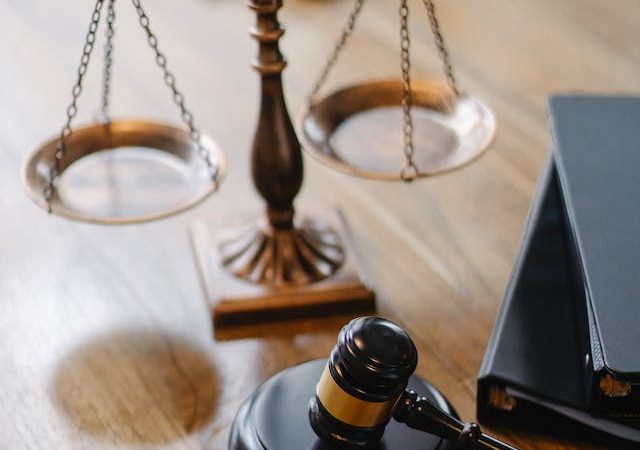Introduction In the realm of legal scholarship, few voices resonate as profoundly as Lisa Jennings. With a storied career steeped in constitutional law, Jennings brings a unique perspective to a pressing concern the vitality of democracy. In this exploration, we delve into the crucial role law students play in salvaging our democratic principles. Why Law
Introduction
In the realm of legal scholarship, few voices resonate as profoundly as Lisa Jennings. With a storied career steeped in constitutional law, Jennings brings a unique perspective to a pressing concern the vitality of democracy. In this exploration, we delve into the crucial role law students play in salvaging our democratic principles.
Why Law Students Matter Right Now
Law students are in the unique position of learning the rules of the game while still being close enough to grassroots civic life to move fast. They study constitutional design, voting rights, administrative procedure, and the rule of law—but they also often have time, networks, and institutional support to apply that learning before they graduate. Many feel the tension: civics education has weakened in prior schooling, and public trust in democratic institutions is fragile. That gap makes law students potential first responders in democratic defense.
The American Bar Association and allied groups have identified that Americans are increasingly pessimistic about democracy, yet still overwhelmingly support promoting the rule of law. That creates a demand for visible, competent advocates—people who can explain, defend, and enforce democratic norms. Law students are raw but capable voices for this work.
The Democratic Challenge
At the heart of contemporary discourse lies the formidable challenge facing democracy. Threats emerge from various corners, testing the resilience of our systems. It is within this context that the legal community finds itself at the forefront of defense. Understanding these threats and acknowledging the responsibility borne by legal minds is paramount in the quest to preserve democratic values.
The Beacon of Hope: Law Students
In this complex landscape, law students emerge as the unsung heroes. Their role extends far beyond textbooks and courtrooms; they are the architects of tomorrow’s advocacy. Legal education, a crucible of civic responsibility, molds these students into guardians of democracy. Through their unique perspective and untainted idealism, law students bring a fresh and dynamic approach to the preservation of democratic principles.
Strategies for Empowerment
Empowerment comes through actionable steps. Law students, often underestimated in their influence, can make a substantial impact. This section unravels strategies for empowerment, offering tangible steps for law students to contribute meaningfully. Real-life examples further illustrate how seemingly small actions can ripple into significant changes.
Insights from Legal Luminaries
To enrich our understanding, we turn to legal luminaries. Exclusive interviews with renowned legal experts provide insights into the nuanced role law students play in advocating for democracy. Their experiences and wisdom serve as guiding beacons for those navigating the complex terrain of defending democratic values.
The Impact Beyond the Courtroom
Legal advocacy extends its tendrils beyond courtrooms and statutes. It shapes public opinion, influencing the collective mindset. Here, we explore the ripple effect of legal advocacy and how law students can extend their influence beyond traditional legal spheres. The impact, we find, is far-reaching, permeating the fabric of society.
Educational Reforms for Tomorrow’s Advocates:
To fortify the foundation of democracy, education must adapt. This section advocates for changes in legal education to equip future lawyers adequately. Beyond legal doctrines, a holistic education that nurtures well-rounded advocates becomes imperative. Educational reforms can cultivate a generation of lawyers attuned to the multifaceted challenges of preserving democracy.

Photo by Sora Shimazaki: https://www.pexels.com
The Call to Action
As we distill the insights gathered, a call to action resonates. Summarizing key takeaways and presenting actionable steps, this section serves as a roadmap. It is an invitation to law students and aspiring lawyers, urging them to embrace their role as guardians of democracy. The journey is arduous, but it is in the hands of these advocates that the torch of democracy burns brightest.
Visual Table for Key Points:
| Section | Key Points |
|---|---|
| The Democratic Challenge | – Identifying threats to democracy |
| – Legal responsibility in democratic preservation | |
| The Beacon of Hope | – Role and significance of law students |
| – Civic responsibility through legal education | |
| Strategies for Empowerment | – Actionable steps for law students |
| – Real-life examples of impactful advocacy | |
| Insights from Legal Luminaries | – Exclusive interviews with legal experts |
| – Wisdom from experiences in defending democracy | |
| Impact Beyond the Courtroom | – Ripple effect of legal advocacy |
| – Extending influence beyond traditional legal spheres | |
| Educational Reforms | – Advocating for changes in legal education |
| – Importance of holistic education for legal advocates | |
| The Call to Action | – Summarized takeaways and actionable steps |
| – Encouragement for law students and aspiring lawyers |
Overcoming Barriers: What Law Students Face and How to Act Anyway
Legal education itself is facing pressures—resource constraints, questions about relevance, and a gap between theory and action. Despite that, proactive students can create impact through grassroots organizing inside their schools: forming democracy-focused legal interest groups, pushing for course offerings on civic resilience, or launching rapid-response teams to support threatened rights in real time.
Barriers like limited time, hierarchical institutions, or fear of overstepping professional norms can be mitigated by building alliances (with professors, nonprofits, and peers), leveraging clinic infrastructure, and using peer-to-peer training models to scale efforts without needing top-down approval for every action.
Practical First Steps for Law Students Who Want to Help
- Join or start a democracy-focused legal clinic or project at your school.
- Volunteer with election protection bodies in upcoming local or national elections.
- Partner with civic education programs (like Street Law) to teach rights in the community.
- Support local voter engagement and anti-intimidation efforts through legal guidance, hotlines, or rights materials.
- Track and report abuses of voting rights or rule-of-law erosion—documenting trends with factual clarity helps future litigation.
- Engage peers in civic literacy so knowledge of democratic process spreads beyond law schools.
Each small action compounds into a larger democratic safety net.
Conclusion
In the crucible of democratic challenges, law students stand as beacons of hope. Their education, experiences, and unwavering commitment position them as catalysts for change. By understanding the threats, embracing their unique role, and acting upon strategic insights, law students can contribute significantly to the preservation of democracy. As we navigate this complex terrain, the collective efforts of these advocates, fueled by wisdom from legal luminaries and fortified by educational reforms, promise a future where democracy not only survives but thrives.

















Leave a Comment
Your email address will not be published. Required fields are marked with *